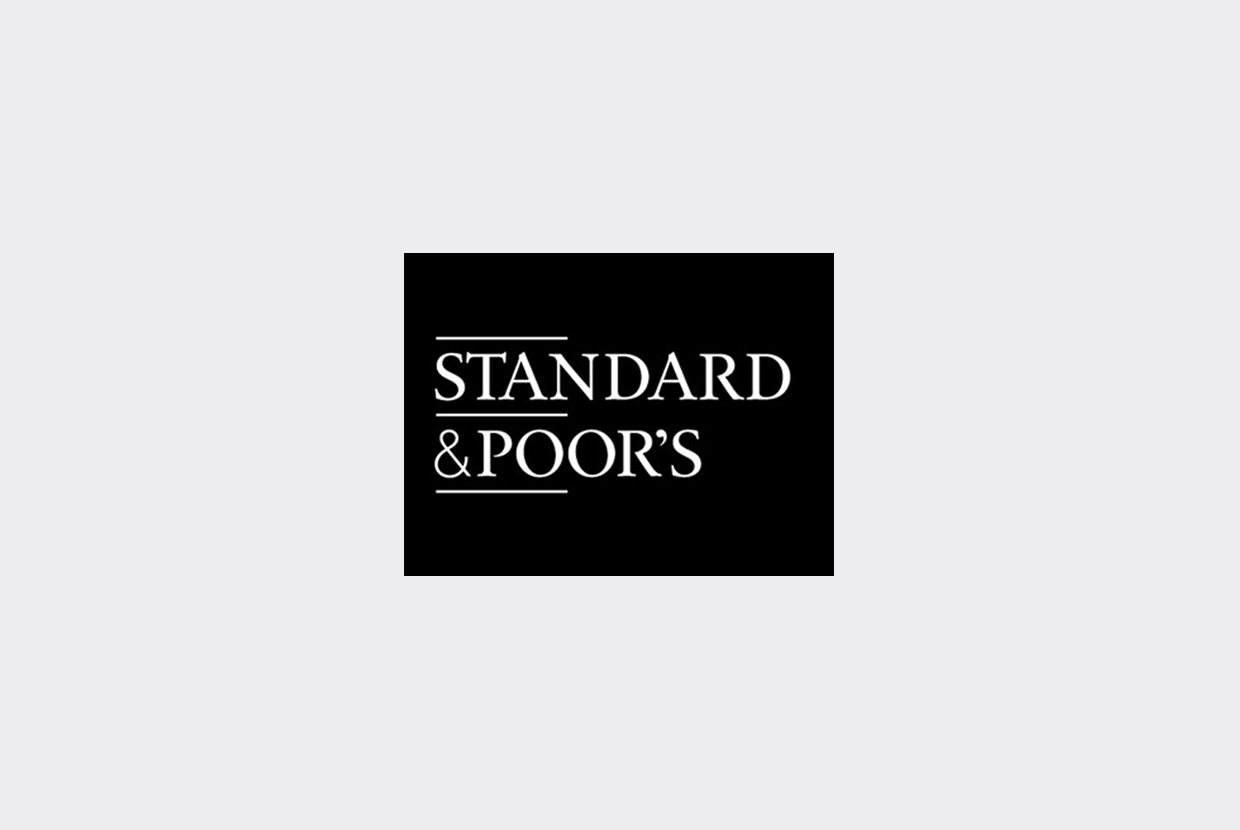Standard & Poor’s Ratings Services has raised its long and short-term counterparty credit ratings on Turkey-based TC Ziraat Bankasi and Turkiye Is Bankasi to ‘B/B’ from ‘B-/C’. The outlook is stable.
At the same time, Standard & Poor’s revised its outlook on Dogus Holding, Turkiye Garanti Bankasi, and Garanti Finansal Kiralama (Garanti Leasing) to stable from negative. In addition, the ratings on these institutions were affirmed.
Standard & Poor’s also raised its public information (‘pi’) ratings on Akbank, Yapi ve Kredi Bankasi, and Turkiye Vakiflar Bankasi to ‘Bpi’ from ‘B-pi’, and its ‘CCCpi’ rating on Turkiye Halk Bankasi to ‘Bpi’.
The various rating actions follow Standard & Poor’s upgrade to ‘B/B’ from ‘B-/C’ of its ratings on the Republic of Turkey, which reflects the broad progress the new government of Turkey has made under its IMF-supported programme, albeit with delays and slippages.
“The soundness of the Turkish banking sector is improving as a result of its restructuring,” says Standard & Poor’s credit analyst Emmanuel Volland. Turkish banks are also benefiting from the improving macroeconomic situation in Turkey , as evidenced by the strong economic growth and a lower interest rate environment. “They now have a chance to improve, unless they are hit by further systemic shocks,” adds Volland. Banks have reduced their vulnerability to exchange rate risk by keeping open foreign currency positions to very low levels.
Notwithstanding significant progresses, banks still face the challenge of improving their poor asset quality and weak capitalisation, and diversifying revenues. The profitability of the banks is still highly dependent on holding government instruments rather than the usual bank lending to the private sector. The banking system has a number of items pending on the reform agenda, including the long-awaited privatisation of the state-owned banks.
The outlook on the banks balances the improving economic prospects with their weak financial profiles. The government has gained some market confidence and interest rates have declined, in line with economic improvements. “If this trend continues, the banks will benefit from the lower cost of funds and an increase in lending opportunities. Conversely, if real interest rates do not start declining in the near future, then the IMF-supported programme will be in jeopardy with the attendant risks of another financial crisis,” says Volland. In this case, the ratings on the banks will come under downward pressures. Apart from the economic environment, profitability and capitalization will drive the credit quality of Turkish banks in 2003 and beyond. Standard & Poor’s Ratings Services said it raised its sovereign credit ratings on the Republic of Turkey to ‘B/B’ from ‘B-/C’. The outlook is stable.
At the same time, the foreign currency ratings on the Export Credit Bank of Turkey were raised to ‘B/B’, in line with those on the sovereign, the bank’s sole shareholder.
“The upgrade reflects the broad progress that the new government of Turkey has made under its IMF-supported programme, albeit with delays and slippages,” says Standard & Poor’s credit analyst Ala’a Al-Yousuf. “The debt burden has continued to decline, due to fiscal adjustment and a fall in real interest rates. This has strengthened confidence in lira assets and helped bolster the exchange rate and international reserves.”
The ratings on Turkey remain constrained by its high public sector debt and limited fiscal flexibility. Although public sector net debt is projected to decline further, it will remain high at just over 70% of GDP at year-end 2003 and year-end 2004. Moreover, this path assumes that the government will continue to make strenuous efforts to reach its public sector primary surplus target under the IMF-supported programme (6.5% of GNP), and that real interest rates will continue to decline.
“Despite the government’s repeated declarations of its commitment to the programme and its huge parliamentary majority, it has faced difficulties in fully adhering to its fiscal and structural reform pledges,” says Al-Yousuf. “Standard & Poor’s expects the government to miss its primary surplus targets by about 0.5% of GNP in 2003 and 2004, but assumes that it will make sufficient progress elsewhere to maintain a positive market sentiment.”
High real interest rates also constrain the ratings. Forward real interest rates on government debt are estimated to be about 20%. If these rates persist, then the IMF programme could be in jeopardy. Inflation has continued to decline, but the central bank has not yet deemed the circumstances right to formally adopt inflation targeting, despite several postponements. Standard & Poor’s expects CPI inflation to average 28% in 2003 and 25% in 2004.
Nevertheless, real GDP growth should be at least 4.5% in 2003 and 2004, supported by a rebound in both domestic demand and exports. Growth could be higher if, in particular, real interest rates turn out to be lower.
External liquidity indicators have also improved. The public sector’s net external debt is projected to continue to decline as a ratio of current account receipts (CARs), to 83% by year-end 2003 and 71% by year-end 2004. The current account is expected to record wider deficits of 3.4% of GDP in 2003 and 2.6% in 2004, but the floating exchange rate regime and the cushion of official international reserves significantly mitigate the risk of another crisis. The gross external financing requirement should remain broadly unchanged through to year-end 2004, at about 145% of official reserves.
“If the government perseveres with the tough fiscal adjustment despite the upcoming local elections, the potential for rating improvements would be increased,” says Al-Yousuf. “Conversely, if real interest rates do not start declining in the near future, then the IMF-supported programme will be in jeopardy, raising the risk of another financial crisis, and bringing the ratings under downward pressure.”







